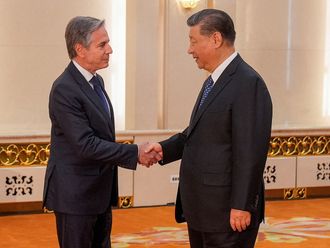Seoul: South Korea holds presidential elections Tuesday after an extraordinary six-month period that began with millions peacefully filling the nation’s streets in protest and ended with the impeachment and imprisonment of ex-President Park Geun-hye.
The Associated Press’ Seoul bureau chief, Foster Klug, who has covered the Koreas since 2005, offers some ideas on what to expect:
WHAT’S THE MOOD AS SOUTH KOREANS VOTE?
Uncertainty, mixed with cautious hope.
South Koreans are used to North Korean threats and to the missiles and artillery aimed at Seoul. But there’s no precedent for the events that drove a democratically elected leader constitutionally from office this year.
The hope is that a new president — possibly liberal front-runner Moon Jae-in — can somehow unite a country divided on deep political, economic, social and regional fault lines.
This will be difficult.
A victory by Moon would come without a clear mandate. Conservatives and liberals are still deeply divided and Moon’s party lacks a majority in parliament.
WHAT ARE THE NEXT PRESIDENT’S MOST URGENT TASKS?
North Korea and jobs.
Moon favours rapprochement with North Korea, hoping talk and possible aid can stop Pyongyang’s nuclear advancement.
A new president must also find a way to create jobs, boost stubbornly-low birth rates and end endemic corruption.
Outrage over economic injustice drove the protests that felled Park.
WHO’S INFLUENCED THE ELECTION MORE: DONALD TRUMP OR KIM JONG-UN?
Kim Jong-un, by a whisker.
Many here will always see North Korea as an existential threat.
That said, Donald Trump has bewildered many.
After weeks of threatening military action, sending US warships to the region and demanding that Seoul pay $1 billion (Dh3.67 billion) for a US missile-defence system that many here oppose, Trump subsequently called Kim Jong Un a “smart cookie” and said he’d be “honoured” to have possible talks.












